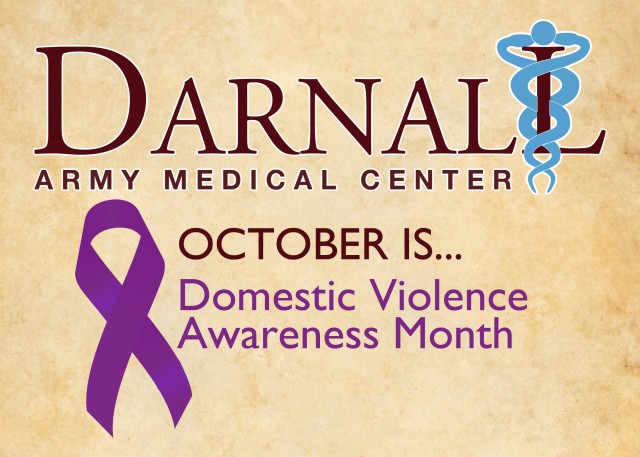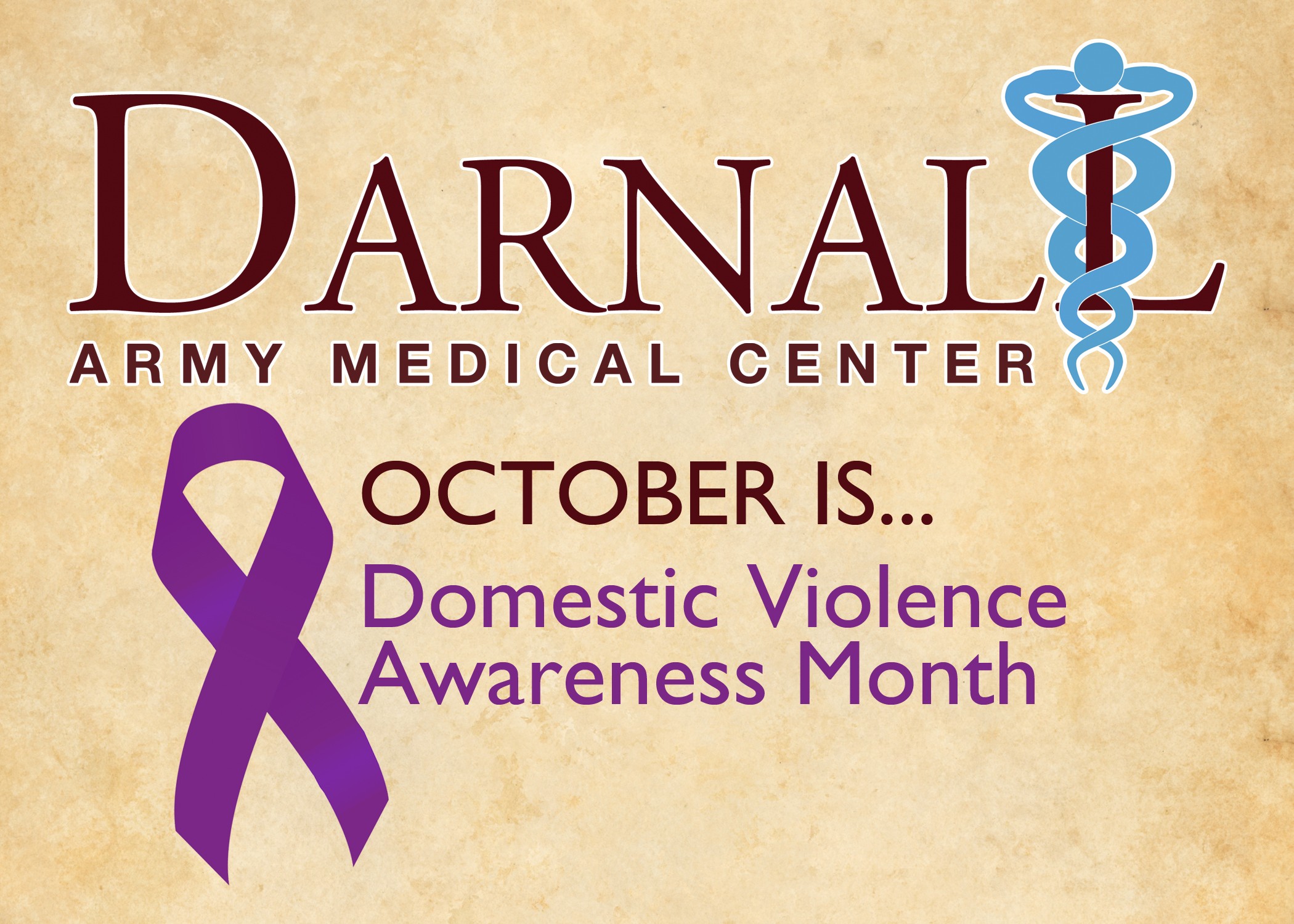FORT HOOD, Texas - There are many programs on Fort Hood aimed at preventing domestic violence, and through Carl R. Darnall Army Medical Center there are also programs aimed at treating abusive relationships.
"The Army has a zero tolerance for domestic violence," said Lt. Col. Sheila Adams, chief, Department of Social Work, "but it is also recognized that there's a lot of strain on our military families and Soldiers and people have problems. We are a microcosm of society, and like any population, domestic violence occurs across all socio-economic groups."
Like Fort Hood's Army Community Services, the Department of Social Work's goal is to strengthen military families. ACS provides prevention and education programs and the Department of Social work offers clinical services.
"We're trying to make sure families are safe," said Adams. "We continuously assess risk in families, and provide clinical treatment services that can help enhance their functioning."
The first step on the pathway to rehabilitation is recognizing an abusive situation, which Adams admitted can be challenging.
"By human nature, we want to fix our own problems first," she said. "Self care in a relationship sometimes is okay, but when you recognize that it's escalated to where you're not arguing anymore, now you're degrading, belittling and mistreating each other and that escalates to a point where physical violence occurs, self managing is no longer okay."
When domestic violence occurs, it is not unusual for commanders and military police to get involved. Soldiers implicated in alleged incidents of domestic abuse are referred to the Department of Social Work. However, Adams said people don't have to wait until a relationship reaches that point. If they sense escalating tension, they can come into the department on their own.
"It's a personal responsibility that both people in the relationship take the onus and say, 'Hey we're having problems, we've been dealing with this for a while. We've not been able to come to a resolution. Maybe we can seek out a professional mediator or a counselor, someone who can be objective,'" said Adams.
For those Soldiers or family members who can't convince their spouse to join them, Adams said individuals have a personal responsibility for their own safety, and they can come in alone.
Once they start the program, the family or individual undergoes a clinical assessment.
"Part of the assessment is assessing risk, doing a safety plan to make sure everyone is safe in the family and working with the commanders. Another part of that is completing a family assessment to determine what services are needed," said Adams.
A multidisciplinary team appointed by the installation commander determines whether or not abuse occurred based on Army standards. This team is required to receive ongoing training and adhere to the Army Medical Command standards for determining abuse.
Another role that this committee has is to ensure that the Soldier and family members have a treatment plan that is specific to their family issues. Treatment may include individual counseling, group therapy, couples counseling and referral to other services to include Army Community Services.
"There are opportunities for Soldiers to get help if abuse is occurring. With command support and continuous monitoring of compliance, the system can be effective in reducing domestic abuse in military families," said Adams. "If a Soldier or family member elects to get help, can acknowledge that they have a problem and is motivated to make a change, rehabilitation is possible."
To contact the Department of Social Work, stop by Bldg. 2255 at 52nd St. and 761st Tank Battalion Ave. or call (254) 288-6474.


Social Sharing